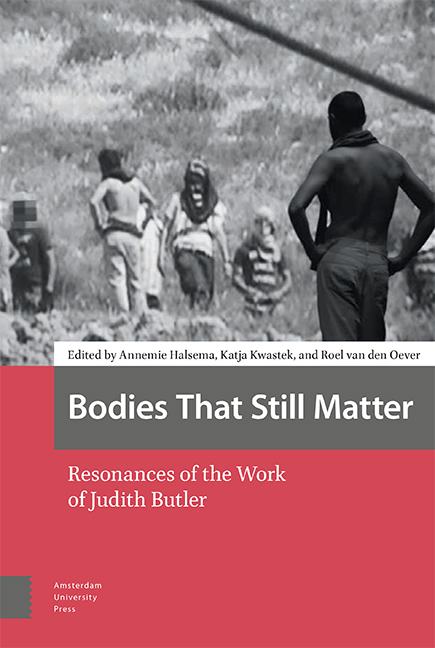Bodies That Still Matter
Published online by Cambridge University Press: 27 May 2021
Summary
Abstract
The question of how best to name those who are most vulnerable to precarity and exploitation is both a conceptual and political one. It has been tempting in recent years to consider vulnerability as the foundation for a new politics, but that is an error. Vulnerability cannot be isolated as a new ground for politics. It is always contextual since it belongs to the organization of embodied and social relations. Vulnerability can neither be isolated from the constellation of rage, persistence, and resistance that emerges under specific historical conditions, nor can it be the basis for a new humanism. Rather, the differential exposure of bodies to abandonment, illness, and death, belong to a sphere of power that regulates the grievability of human lives, linked to the climate crisis and the demand for a new political vocabulary that moves beyond anthropocentrism. The differential scheme that governs the grievability of lives is a central component of social inequality at the same time that it belongs to forms of institutional violence that target communities and establish their precarity, if not their dispensability. If and when a population is (or is treated as) grievable, they can be acknowledged as a living population whose deaths would be grieved if their lives were lost. To assert the grievability of human life under conditions in which those lives have already been abandoned is to make a political claim against abandonment, for sustainable infrastructure, and for both the grievability and value of those lives. Mourning is thus linked with public protest, Vulnerability is the possibility of injury, but also of responsive and radical politics, one that asserts continued bodily existence as a form of persistence.
Keywords: vulnerability, embodiment, grievability, life, inequality, violence, protest
We are living in a time of numerous atrocities and senseless death, and so the enormous ethical and political question becomes: what are the modes of political representation available to us? I want to caution against too quickly developing a politics of vulnerability or a politics of care as an immediate pathway for feminism or for the Left, although I am quite clear that we need to reconsider both notions, and that many people do suffer from disproportionate forms of vulnerability.
- Type
- Chapter
- Information
- Bodies That Still MatterResonances of the Work of Judith Butler, pp. 177 - 194Publisher: Amsterdam University PressPrint publication year: 2021



